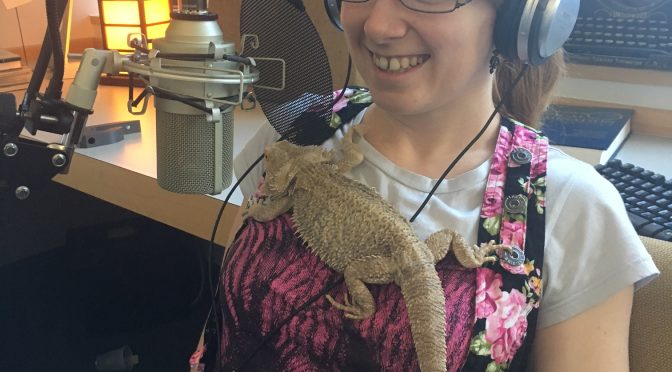Podcast: Play in new window | Download (Duration: 47:26 — 65.2MB)
Subscribe: Spotify | RSS | More
Is having a pet while you’re in medical school a good idea?
 Dave’s gotten a few requests over the years from folks who want to know: is it a good idea to have pets while you’re in medical school? And Dave also has co-hosts who wanted to talk about their pets on The Short Coat Podcast. Now, Dave isn’t a pet kinda guy, but luckily he went out of town and Kylie Miller was able to take over the mic. Which means that finally, after all this time, some med student pet owners–Kaci McCleary, Vic Hatcher, Tim Maxwell, and Lisa Wehr–were able to get together with Kylie to talk about the challenges and rewards of having a fur baby while working through medical school.
Dave’s gotten a few requests over the years from folks who want to know: is it a good idea to have pets while you’re in medical school? And Dave also has co-hosts who wanted to talk about their pets on The Short Coat Podcast. Now, Dave isn’t a pet kinda guy, but luckily he went out of town and Kylie Miller was able to take over the mic. Which means that finally, after all this time, some med student pet owners–Kaci McCleary, Vic Hatcher, Tim Maxwell, and Lisa Wehr–were able to get together with Kylie to talk about the challenges and rewards of having a fur baby while working through medical school.
[huge_it_gallery id=”131″]
We Want to Hear From You
Are you worried about having a pet while studying medicine? Or are you completely unconcerned? Tell us at 347-SHORTCT anytime, visit our Facebook group, or email theshortcoats@gmail.com.



 Donors are very important to universities and medical schools, typically contributing money to further the educational mission. Often, donors get a plaque on the wall, and some even get whole buildings named after them.
Donors are very important to universities and medical schools, typically contributing money to further the educational mission. Often, donors get a plaque on the wall, and some even get whole buildings named after them.
 Euthalia (not her actual name, though it probably should be. Feel free to take that name, anonymous caller) called us at 347-SHORTCT to express her sadness that she didn’t get a secondary interview at Iowa. Which sucks for Iowa because…well, we might not get to meet Euthalia. Of course, she knows rejection is not the end of the road for her dream. Brett Hanson, Tony Mai, Patrick Brau, and Levi Endelman share some things she needs to do now to deal with it, and to prepare her for the next time she applies.
Euthalia (not her actual name, though it probably should be. Feel free to take that name, anonymous caller) called us at 347-SHORTCT to express her sadness that she didn’t get a secondary interview at Iowa. Which sucks for Iowa because…well, we might not get to meet Euthalia. Of course, she knows rejection is not the end of the road for her dream. Brett Hanson, Tony Mai, Patrick Brau, and Levi Endelman share some things she needs to do now to deal with it, and to prepare her for the next time she applies.











